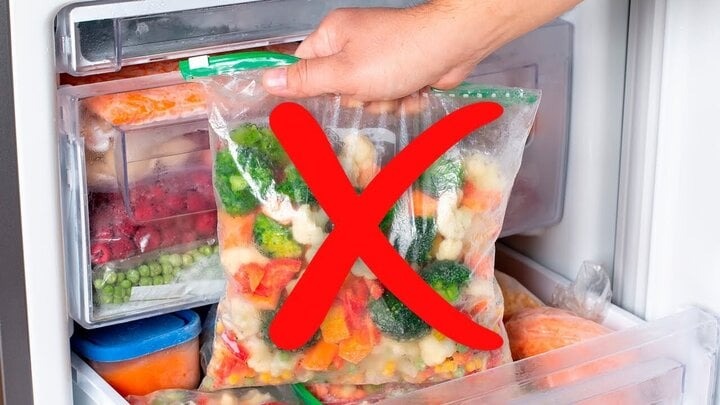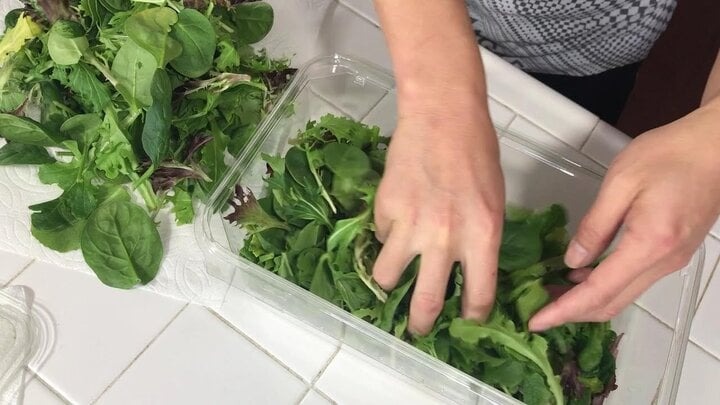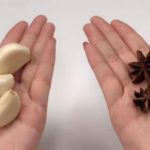Why You Shouldn’t Store Vegetables in Plastic Bags in the Fridge
Vegetables tend to have high moisture content and require a well-ventilated space to maintain freshness and inhibit bacterial and mold growth. Storing vegetables in sealed plastic bags prevents air circulation and traps moisture, leading to a damp environment. This promotes the growth of bacteria and mold, causing the vegetables to rot and spoil prematurely.
Here are the specific reasons why you should avoid storing vegetables in plastic bags in the fridge:
Reduced Vegetable Lifespan
Keeping vegetables in plastic bags decreases their lifespan. The moisture that accumulates inside the plastic bag causes the vegetables to turn soft and rot quickly, resulting in food waste and compromised meal quality.

Vegetables stored in plastic bags have a reduced lifespan.
Plastic Bags Can Contain Harmful Substances
Many plastic bags on the market are made from polyethylene. While polyethylene itself is non-toxic, additives such as plasticizers, stabilizers, and colorants may migrate into the food during contact. Harmful substances like benzopyrene and phthalates can leach out of the plastic bags and contaminate the food, posing potential health risks if consumed over extended periods.
Bacterial Contamination Risk
The damp environment created by plastic bags provides an ideal condition for bacterial and mold growth, increasing the risk of food poisoning. Moreover, the bacteria and mold can spread to other foods in the fridge, compromising the entire storage space.
Loss of Flavor and Nutrients
Vegetables stored in sealed plastic bags will gradually lose their natural flavor and nutritional value. The lack of air and high moisture content diminishes the nutritional quality of the vegetables, making them less tasty and nutritious than they should be.

Vegetables stored in sealed bags lose their natural flavor and nutrients.
For these reasons, it is best to avoid placing vegetables in plastic bags for fridge storage.
Proper Vegetable Storage Methods
As soon as you get home, remove the plastic bags containing vegetables to prevent moisture buildup and allow the vegetables to breathe, thus prolonging their freshness.
Instead of plastic bags, opt for cloth or paper bags. These bags are absorbent and help maintain a dry and ventilated environment around the vegetables, inhibiting bacterial and mold growth.
Another method is to use storage containers with air holes. These containers not only prolong the freshness of the vegetables but also help you organize them neatly in the fridge, saving space and providing ideal storage conditions.
Before placing vegetables in the fridge, wash and thoroughly dry them. This helps remove surface dirt and bacteria, reducing the risk of contamination and extending their shelf life.
To manage moisture levels in the fridge, place a paper towel under the vegetables. The paper towel will absorb excess moisture, keeping the vegetables dry and crisp.
Specific Storage Tips for Different Vegetables
Leafy greens (such as spinach, water spinach, and beets): Store in cloth bags or containers with air holes. You can also wrap them in slightly damp paper towels before placing them in the container to maintain optimal moisture levels.
Root vegetables (such as carrots, radishes, and onions): Store in cloth bags or directly in the crisper drawer of your refrigerator. Ensure they are dry and have adequate ventilation.
Fruits (such as apples, pears, and cucumbers): Store in containers with air holes or paper bags. For highly perishable fruits like strawberries and grapes, regularly check and remove any spoiled pieces to prevent contamination.
The Ultimate Rice Storage Solution: Keep Rice Fresh and Pest-Free for Years
“Moth infestations in rice are a nuisance and can greatly diminish its nutritional value and taste. This is a common problem faced by many, and it’s time to equip yourself with a simple, cost-effective solution to get rid of these pests. It’s a nifty trick that every homemaker should know, and it won’t cost you a dime!”





































